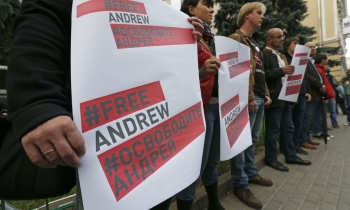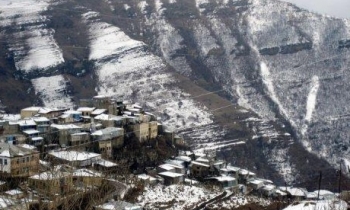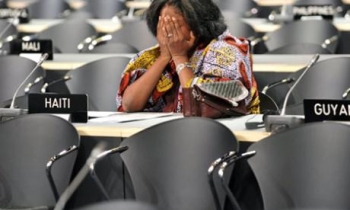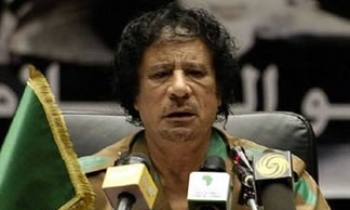Press freedom organisaitons have deplored the censorship and harassment to which Sudan’s privately-owned media have been subjected since the start of the year. Arrests, summonses, threats and outright bans on certain news items — the campaign waged by the government against the independent press is reducing the space for free expression even more.
“It should be an honour for Sudan to let the many Khartoum-based daily newspapers operate freely and express a wide range of views,” Reporters sans Frontières (RSF) said. “But no, the authorities have instead chosen to send zealous censors to the printeries, people without authority, legitimacy or clear ideas. This censorship is not only illegal, it is also saddening.”
ARTICLE 19 has also condemned the crackdown on freedom of expression in Sudan. ARTICLE 19 Executive Director Dr Agnes Callamard said, "The censorship and harassment and intimidation on journalists carrying out their duties is a serious deterioration of the human rights situation in Sudan and a clear violation of the 2005 Comprehensive Peace Agreement (CPA) in addition to international conventions such as the International Convention on Civil and Political Rights."
The government decided to reestablish censorship for the privately-owned media on February 6 after the media referred on several occasions the support it was providing for a Chadian rebel offensive against the Chadian capital of N’Djamena. An unidentified official with the National Security Service told Reuters on March 6 that prior censorship had been reintroduced, confirming the impression already reached by the Khartoum-based press after a month of harassment by the political police.
Journalists told Reuters that NSS officials began on February 6 to descend on the offices of newspapers every evening to check the content of the next day’s issue before it went to press. On February 10, for example, the police suppressed an article by Haider al-Mikashfy in the Arabic-language daily Al-Sahafa about a recent speech by NSS chief Salah Gosh accusing some journalists of working for “foreign embassies” and warning that “investigations” were under way.
In the latest example of this permanent surveillance, NSS officials burst into the printing works of the privately-owned weekly Al-Midan on March 3 and forced employees to remove two reports from the next issue. One was about the acquittal of its editor, Al-Tijani Al-Tayyib Babiker, on charges of “disturbing the peace.” The other referred to a decision by an armed group in Darfur to open an office in Israel. In response, the weekly’s staff decided to delay publication, and the issue did not appear until March 5.
Before that, two NSS members burst into Al-Midan’s printing works on February 26 and partially censored two articles about the use of torture on detainees in Sudan.
A total of seven journalists from five newspapers were questioned on February 18 and 19 for publishing reports about a reshuffle in top positions in the police force. The first two to be questioned were Al-Ahdath editor Adil Al-Baz and Al-Watan editor Ahmed Khalifa, who interrogated on February 18 and were held overnight.
The next day, five more were summoned for questioning. They were Al-Wifaq news editor Mohammed Said al-Tayeb, Akher Lahza editor Moustapha Abou Al-Alalem and one of his journalists, Mey Ali Adem, and Al-Rai al-Aam editor Kamal Hassan Bakhit and one of his journalists, Hafiz al-Khayr. All seven were released on bail on February 19.
On February 14, forces prevented the privately-owned daily Al-Rai al-Shaab from publishing after it referred to the government’s support for Chadian rebels.
Censorship was officially lifted in Sudan in July 2005 after a peace accord was signed with the rebels of the southern Sudan People’s Liberation Movement.









